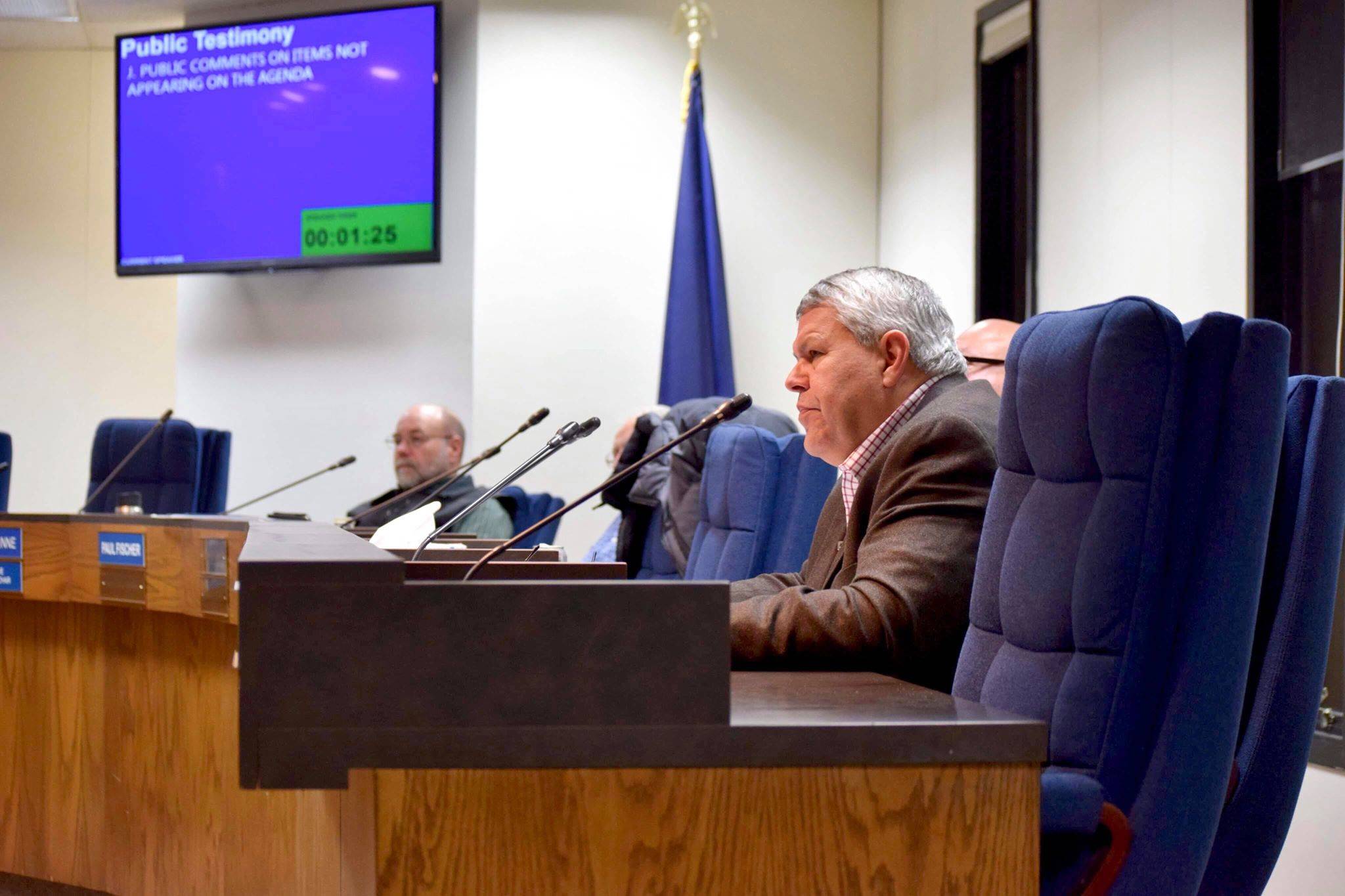Voters will not find a bed tax on the ballot this October, after Kenai Peninsula Borough Mayor Charlie Pierce issued a veto on a recent ordinance passed by the Kenai Peninsula Borough Assembly. The ordinance — imposing a 10% tax on rentals of temporary lodging, including motels, hotels, bed and breakfast businesses and overnight camping facilities — was passed by the assembly June 18.
The veto was issued in a June 27 memo from Pierce to the assembly. In the memo, Pierce said he did not support a dedicated or targeted tax on specific activities or services. He also said having too many tax proposals on the ballot can be confusing, referring to an ordinance introduced at Tuesday’s meeting that would increase the sales tax cap from $500 to $1,000. Pierce also said the tax wasn’t equitable and that cities should decide if they want to impose a bed tax.
The vote was a tie, with assembly members Hal Smalley, Willy Dunne, Brent Hibbert and Dale Bagley voting to override the veto.
With the new 10% rate, the borough would expect to gain $825,000 in additional revenues for FY 2020, and then $3.3 million in FY 2021 and FY 2022. The funds would be used to to support education.
The bed tax, similar to ones defeated by the borough assembly in 2017 and 2018, was proposed to close budget shortfalls facing the borough.
“Due largely to the state’s current economic crisis and proposed reductions of state funds to local governments, the borough is currently facing a budgetary shortfall estimated to be substantial,” Bagley wrote in an April 25 memo to the assembly.
Bagley said he thinks there is a possibility the tax could pass the voters, despite ample testimony from residents hoping to defeat the ordinance.
The ordinance passed the assembly June 18 five to three, with assembly members Norm Blakeley, Wayne Ogle and Kenn Carpenter in opposition, and Kelly Cooper abstaining from the vote due to a conflict of interest determined by the borough legal department.
Many of the residents who offered public testimony on the ordinance were opposed, though the tax saw more support at the June 18 meeting than during the ordinance’s last public hearing, June 4.


